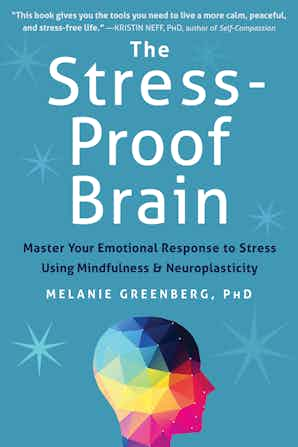YOU MIGHT ALSO LIKE
CLEAR ALL
BY TEACHER
BY TYPE
FILTER

TOPIC
- Mind-Body Connection (15)
- Self-Development (14)
- Emotional and Mental Health (12)
- Anxiety (11)
- Mindfulness (9)
- Breathwork (8)
- Inner Peace (8)
- Resilience (8)
- Self-Healing (8)
- Self-Limiting Beliefs (8)
- Trauma Healing (8)
- Spiritual Life (7)
- Athlete Well-Being (6)
- Burnout (6)
- Habits of Mind (6)
- Neuroscience (6)
- Self-Actualization (6)
- Self-Care (6)
- Depression (5)
- Emotional Intelligence (EQ) (5)
- Empowerment (5)
- Entrepreneurship (5)
- Focus (5)
- Happiness (5)
- Rest (5)
- Self-Control (5)
- Self-Discovery (5)
- Self-Reflection Practices (5)
- Self-Reliance (5)
- Transformation (5)
- Awareness (4)
- Caregiver Well-Being (4)
- Courage (4)
- Empathy (4)
- Goal Setting (4)
- Grit (4)
- Honoring Emotion (4)
- Human Potential (4)
- Inner Strengths (4)
- Negative Self-Talk (4)
- Neuroplasticity (4)
- Peak Performance (4)
- Positive Psychology (4)
- Presence (4)
- Self-Reckoning (4)
- Spiritual Healing (4)
- Well-Being (4)
- Anger (3)
- BIPOC Well-Being (3)
- Chronic Health Conditions (3)
- Fear (3)
- Grief (3)
- Habit Formation (3)
- Joy (3)
- Life Challenges (3)
- Motivation (3)
- Positive Thinking (3)
- Relationship Challenges (3)
- Spiritual Growth (3)
- Work Challenges (3)
- Yoga (3)
- Authenticity (2)
- Biofeedback (2)
- Brain Health (2)
- Challenges with Teens (2)
- Children’s Well-Being (2)
- Cognitive Behavioral Therapy (2)
- Competition (2)
- Diet and Nutrition (2)
- Disconnection (2)
- Energy Healing (2)
- Exercise (2)
- Failure (2)
- Finding Meaning (2)
- Growth Mindset (2)
- Heartmath (2)
- Indigenous Well-Being (2)
- Inner Child (2)
- Jealousy/Envy (2)
- Leadership (2)
- Letting Go (2)
- Mental Health Challenges (2)
- Mindfulness Practices (2)
- Panic Attacks (2)
- Parenting (2)
- Passion (2)
- Perception (2)
- Physical Health (2)
- Polyvagal Theory (2)
- Positive Self-Talk (2)
- Psychology (2)
- PTSD (2)
- Self-Acceptance (2)
- Self-Discipline (2)
- Self-Worth (2)
- Shame (2)
- Social Psychology (2)
- Somatic Practices (2)
- Soul Mission (2)
- Trauma (2)
- Trust (2)
- Willpower (2)
- Women’s Well-Being (2)
- Work-Life Balance (2)
- Yoga Therapy (2)
- Abandonment (1)
- Academic Struggles (1)
- Addiction Recovery (1)
- Affirmations (1)
- Aging (1)
- Art Therapy (1)
- Awe (1)
- Black Well-Being (1)
- Body Image (1)
- Buddhism (1)
- Building Character (1)
- Calming Meditation (1)
- Chakras (1)
- Child’s Challenging Behavior (1)
- Child’s Emotional Growth (1)
- Cognition (1)
- Collective Trauma (1)
- Communication Skills (1)
- Community Healing (1)
- Confidence (1)
- Conscious Evolution (1)
- Consciousness (1)
- Creative Well-Being (1)
- Curiosity (1)
- Decision Making (1)
- Disabled Well-Being (1)
- Embodiment (1)
- Fellowship and Community (1)
- Female Empowerment (1)
- Freedom (1)
- Friendship (1)
- Guided Imagery (1)
- Guided Meditation (1)
- Guilt (1)
- Handling a Child’s Illness (1)
- Higher Calling (1)
- Hypnosis (1)
- Identity (1)
- Imagination and Creativity (1)
- Inner Life (1)
- Insight (Vipassana) Meditation (1)
- Integrity (1)
- Interdependence (1)
- Intimacy (1)
- Job Loss (1)
- Journaling (1)
- Kids and Sports (1)
- Life Force Energy (1)
- Longevity (1)
- Managing Energy (1)
- Manifestation (1)
- Mantra Meditation (1)
- Masculine/Feminine Dynamics (1)
- Neurodiversity (1)
- Personality Disorders (1)
- Personality Typing (1)
- Play (1)
- Quantum Physics (1)
- Racial Healing (1)
- Relationship with Money (1)
- Relationship with Time (1)
- Romantic Relationships (1)
- Search for Purpose (1)
- Self-Compassion (1)
- Self-Love (1)
- Self-Realization (1)
- Situational Depression (1)
- Sleep (1)
- Sleep Disorders (1)
- Social Anxiety (1)
- Speaking Your Truth (1)
- Spiritual Development (1)
- Suffering (1)
- Talk Therapy (1)
- Taoism (1)
- Tapping/EFT (1)
- Tarot (1)
- The Divine (1)
- Tibetan Buddhism (1)
- Time Management (1)
- Vedic Meditation (1)
- Veteran Well-Being (1)
- Visualization (1)
- Vulnerability (1)
- Wholeness (1)
- Work Ethic (1)
- Work Relationships (1)
- Zen Buddhism (1)
- Zen Meditation (1)
FILTER

TEACHER
- Debbie Ford (2)
- don Jose Ruiz (2)
- Jay Shetty (2)
- Judith Orloff (2)
- Lisa Wimberger (2)
- Lorin Roche (2)
- Mark Manson (2)
- Stephen Porges (2)
- Tony Robbins (2)
- Wim Hof (2)
- Amishi Jha (1)
- Amy Morin (1)
- Arielle Schwartz (1)
- Ashley Neese (1)
- Aviva Romm (1)
- Belleruth Naparstek (1)
- Bessel van der Kolk (1)
- Blaise Aguirre (1)
- Brené Brown (1)
- Brian Tracy (1)
- Brian Weiss (1)
- Chalene Johnson (1)
- Chip Conley (1)
- Christiane Northrup (1)
- David Perlmutter (1)
- Elizabeth Stanley (1)
- Frederic Luskin (1)
- Gary Craig (1)
- Jan Willis (1)
- Jana Long (1)
- Jessica Dore (1)
- Jon Kabat-Zinn (1)
- Kenneth Pelletier (1)
- Linda Graham (1)
- Lise Van Susteren (1)
- Lori Gottlieb (1)
- Martha Beck (1)
- Matt Kahn (1)
- Mirabai Bush (1)
- Ralph De La Rosa (1)
- Rich Fernandez (1)
- Rick Hanson (1)
- Robert Augustus Masters (1)
- Robert Sapolsky (1)
- Ruby Wax (1)
- Stan Tatkin (1)
- Stephanie Y. Evans (1)
- Sue Morter (1)
- Swami Mukundananda (1)
- Tara Brach (1)
- Thich Nhat Hanh (1)










